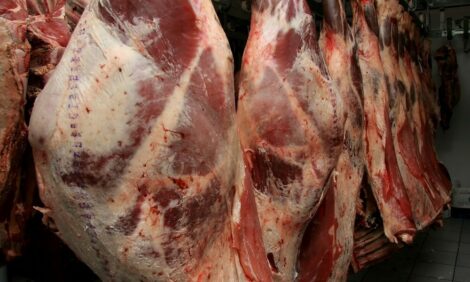



AMI, Meat and Poultry Coalition Launch Web Site Calling for Balanced Food and Fuel Policy
US - AMI and a coalition of meat, livestock and poultry organizations today unveiled www.balancedfoodandfuel.org, a Web site dedicated to informing policy-makers, the media and the public about the impact of national ethanol policy on the industry and on consumers.The timely Web site features economic analyses, charts, third-party experts, important reading and basic facts about ethanol policy. Coalition member sponsors include the American Meat Institute, National Chicken Council, National Cattlemen’s Beef Association, National Meat Association, National Milk Producers Federation, National Pork Producers Council, National Turkey Federation and United Egg Producers.
A national mandate for the fuel industry to utilize 7.5 billion gallons of renewable fuels each year, a $0.51 per gallon tax incentive for ethanol blenders, and a tariff on imported ethanol have all stimulated demand for ethanol and driven up the cost of corn, which is the primary feedstock for ethanol production in the United States.
But as BalancedFoodandFuel.org points out, livestock and poultry producers rely on corn to feed their animals. The rising cost of corn has driven up the cost of feed and with it the cost of meat, dairy and poultry products, causing some producers to cut back production. According to the coalition, these economic shifts will affect consumer purchasing behavior, potentially reducing animal protein consumption.
“Our nation’s current ethanol policy may be good news for petroleum blenders, but it’s a raw deal for animal agriculture and consumers,” the site says. “A more rational policy, however, can help avert the coming economic crisis.” On the site, the coalition details the policies that its members believe will help balance food and fuel policy.
“We hope this site will be a valuable resource on this important national issue,” said AMI President J. Patrick Boyle, whose association is a member of the coalition. “Our ethanol policy is having enormous consequences in the food and agriculture sector, and we believe that informed policy-makers can make better decisions to balance food and energy needs.
TheCattleSite News Desk


